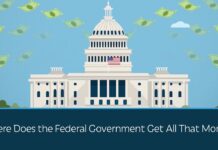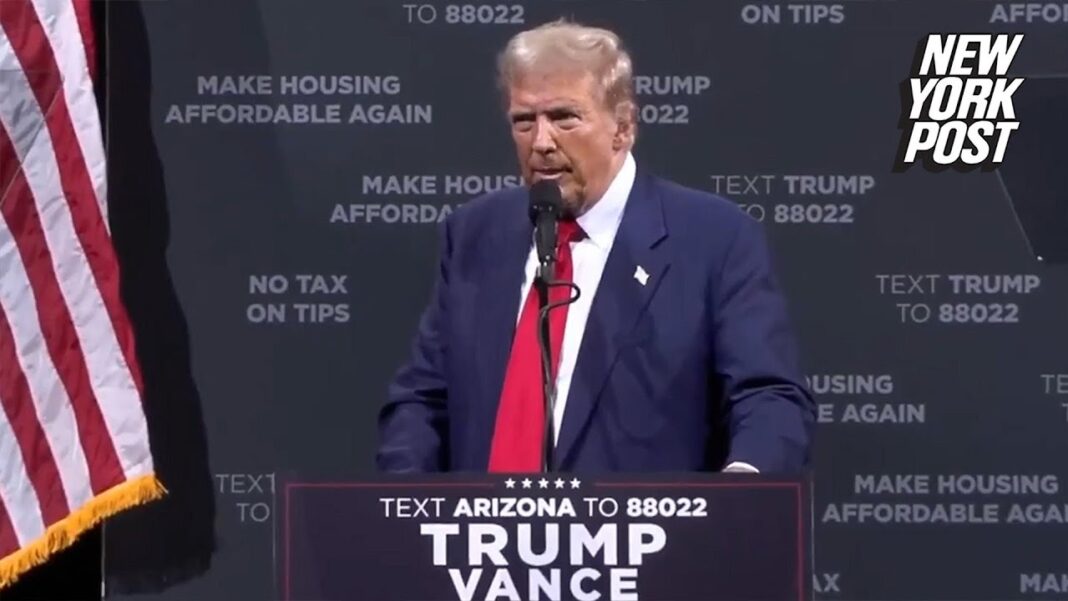The former president told a crowd in Arizona that working class Americans deserve to ‘catch a break.’
Former President Donald Trump has said he plans to end taxes on overtime wages for individuals who work more than 40 hours a week if he is elected to the White House again.
Trump made the comments during a campaign rally in Tucson, Arizona, on Sept. 12, telling the crowd that working class Americans deserve to “catch a break.”
“Today, I’m also announcing that as part of our additional tax cuts, we will end all taxes on overtime. You know what that means? Think of that,” the Republican said. “That gives people more of an incentive to work, it gives the companies a lot, it’s a lot easier to get the people.”
Trump said ending taxes on overtime wages would potentially generate a “whole new workforce” in the United States.
He went on to praise the hard work of police officers, nurses, factory workers, construction workers, truck drivers, and machine operators.
“The people who work overtime are among the hardest working citizens in our country, and for too long no one in Washington has been looking out for them,” he continued.
Trump did not provide further details as to how the tax policy would work.
Currently, overtime income—which goes to employees who are nonexempt under the Fair Labor Standards Act—is taxed at the same rate as standard income, and any change to the tax law requires an act of Congress.
Also during the Tucson rally, Trump repeated his promise to end taxes on tips and Social Security benefits for seniors.
The Republican has often said he plans to scrap both taxes immediately after taking office if he wins the presidential election in November.
Impact of Harris, Trump Tax Policies
Under current law, tips are considered normal income and subject to standard income tax rates.
Meanwhile, around 40 percent of Americans who receive Social Security payments have to pay federal income taxes on those benefits, according to the Social Security Administration.
This typically happens for Americans who have “other substantial income” in addition to their monthly benefits, including wages, earnings from self-employment, interest, and dividends, according to the agency.















































